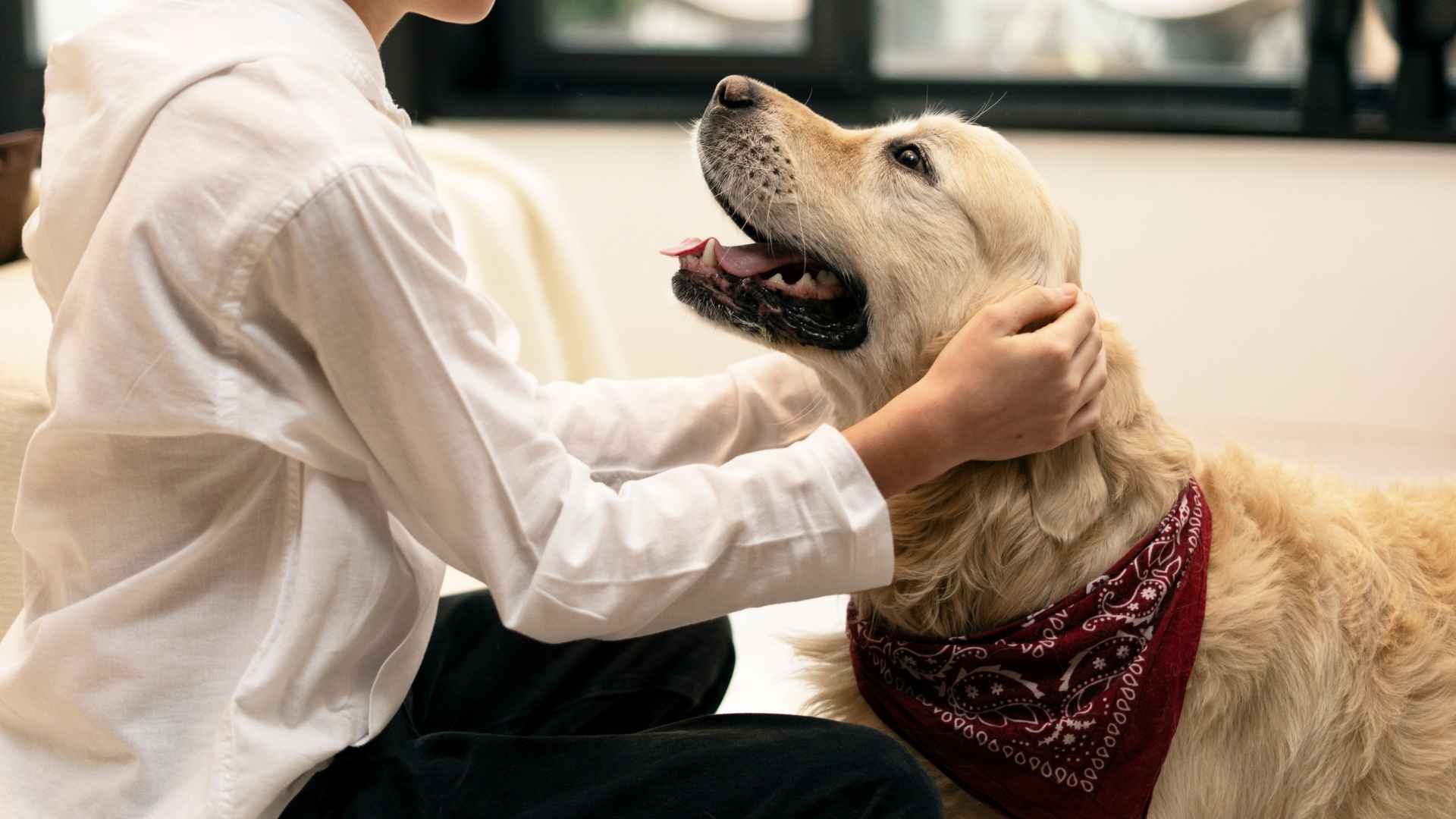Sometimes, the best medicine doesn’t come in a bottle—it comes with four legs, soft fur, and eyes that say, “I’ve got you.” For people living with PTSD, therapy dogs can offer more than comfort; they provide grounding, routine, and a calming presence in moments of distress.
There are over 50,000 therapy dogs in the U.S., and for good reason—they’re changing lives one paw at a time. For individuals living with Post-Traumatic Stress Disorder (PTSD)—a trauma and stress-related condition that impacts approximately 6.8% of Americans at some point in their lives—these dogs offer more than just companionship.
These special dogs aren’t just affectionate; they’re emotionally attuned and deeply responsive to their person’s needs. With the right training, most service dogs can sense anxiety spikes before they escalate, provide tactile distraction through nudges or pressure therapy, and offer constant reassurance in an often unpredictable world.
If you or someone you love is seeking an emotional support animal on the journey toward healing, we will walk you through the top service dog breeds known for their therapeutic strength. Let’s meet the dogs who don’t just fetch—they help rebuild peace.
Therapy Dog Breeds for PTSD
1. Beagle
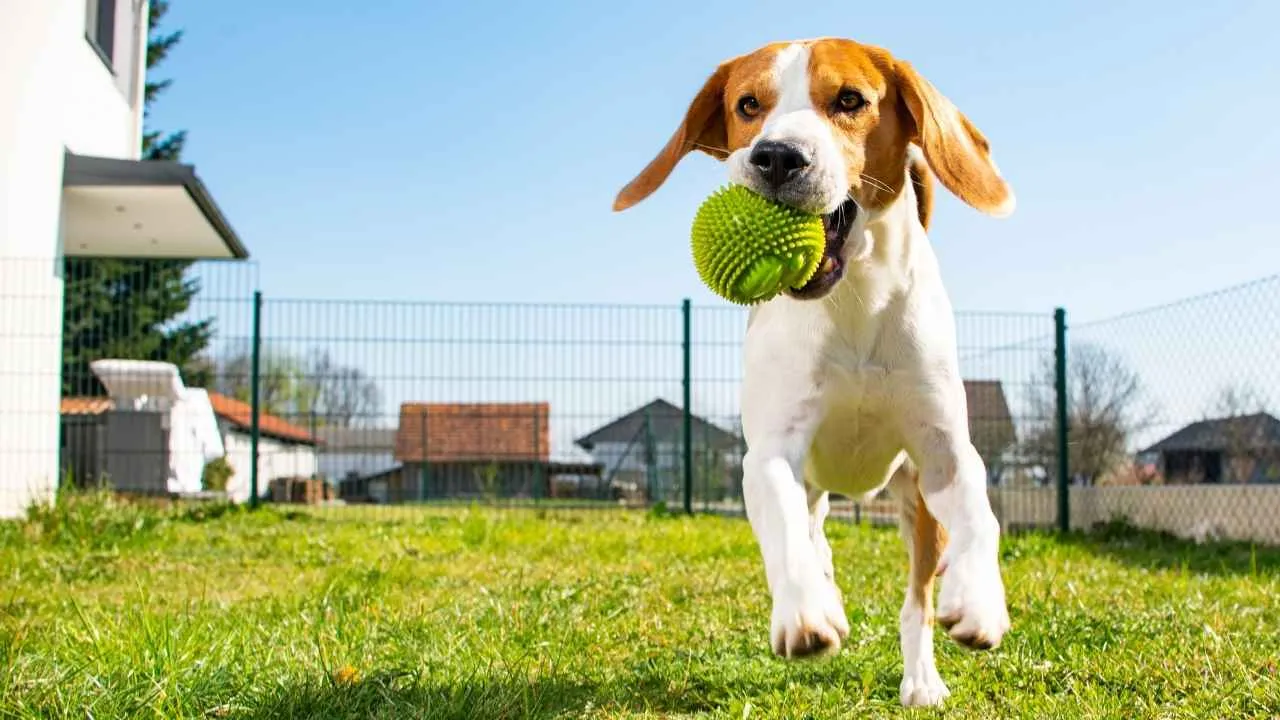
Beagles are one of the top breeds in the U.S. because of their lovable personalities, compact size, and easygoing nature. Plus, they’re just plain fun to be around, says the American Kennel Club (AKC).
But what truly makes them shine in PTSD therapy is their unshakable gentleness, loyalty, and a vibe that screams, “Hey, I’m here, I love you, and I’ll listen to your problems—even if you talk to me for three hours about a dream you had.”
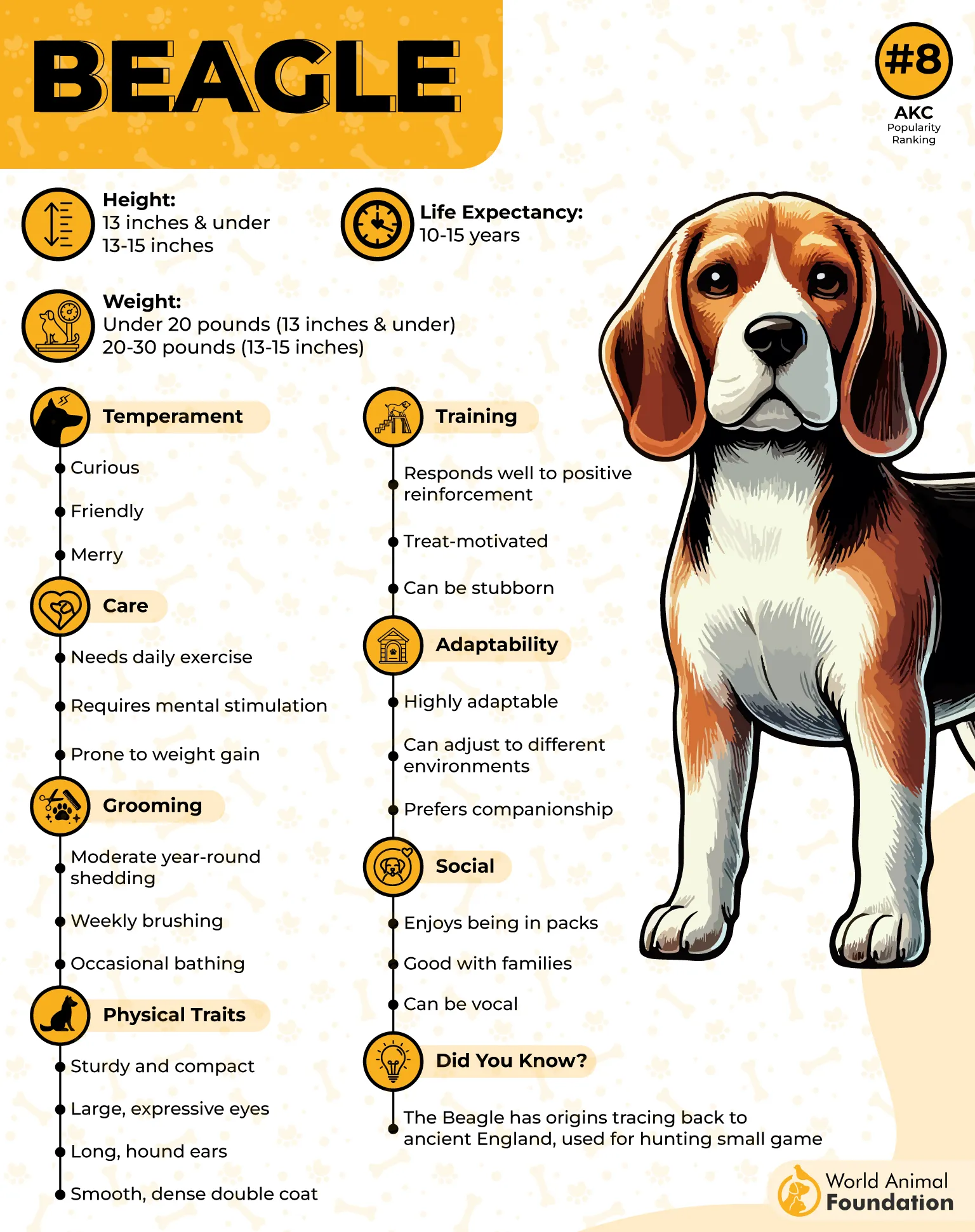
Although typically classified as medium-sized dogs, Beagles actually come in two sizes: one variety stands 12 to 15 inches tall, while the smaller version stays under 12 inches. Regardless of their height, adult Beagles should weigh no more than 30 pounds.
Why Beagles Are Great for PTSD Support:
✅ These pups are naturally attuned to human emotions. If you’re feeling off, your Beagle will likely stick by your side like a furry little shadow, offering silent support and occasional wet-nosed nudges.
✅ PTSD often disrupts routines, but Beagles thrive on consistency. Their internal clock knows exactly when it’s time for breakfast, walks, cuddles, and the all-important stare-at-nothing-for-ten-minutes meditation session.
✅ Big enough to be huggable, small enough to sit in your lap without cutting off circulation—Beagles are just the right size for a mid-anxiety cuddle.
In certain cases, dogs can actually detect when your blood sugar is dropping—thanks to their incredible sense of smell! However, they need specialized training to reliably alert you.
Beagles have low-maintenance coats that don’t require much grooming—keeping their minds busy and bodies active is a much bigger priority than brushing. However, house training can be tricky.
Heads Up: Beagles do have one tiny quirk—you know, besides being criminally cute. They’re vocal. That howl? It’s not sadness; it’s just their way of saying, “I have THOUGHTS!”
2. Golden retriever
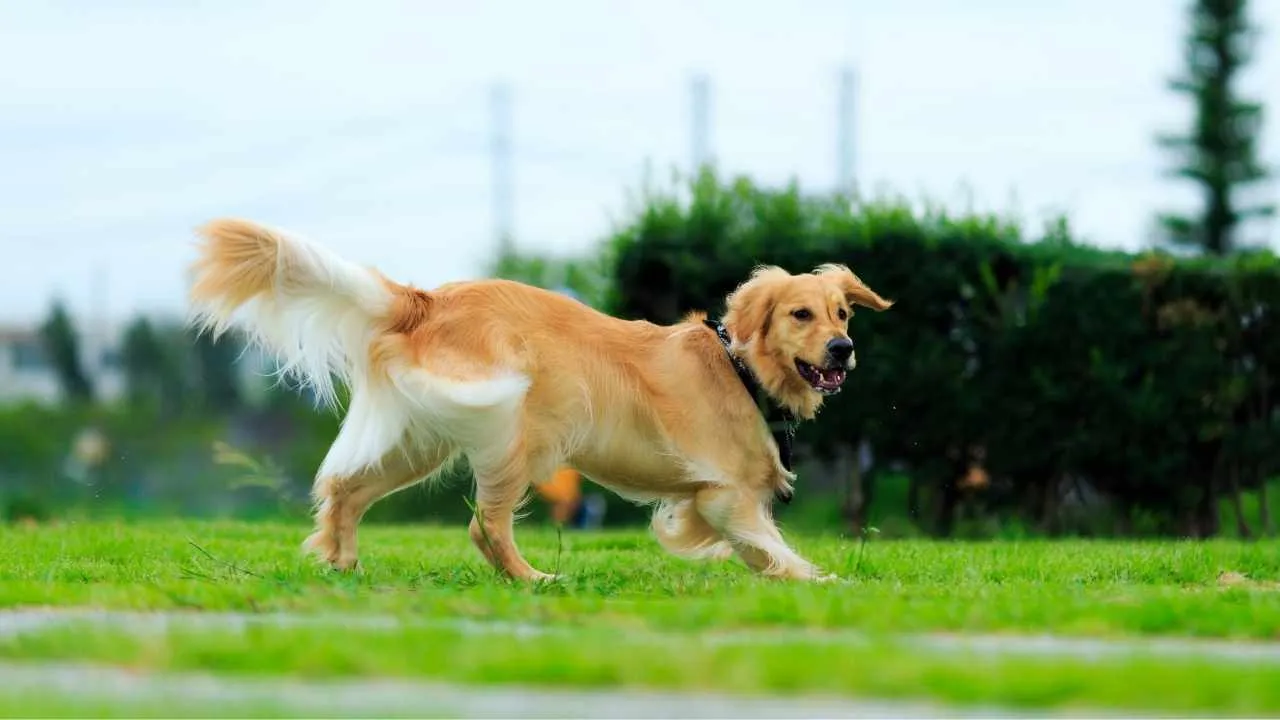
If therapy dogs had a Hall of Fame, the Golden Retriever would be on the cover—probably holding a tennis ball and smiling like they just won “Most Likely to Brighten Your Entire Life.”
It’s no surprise they’re one of the most beloved dog breeds in the U.S. With their smarts, loyalty, trainability, and affectionate nature, “Goldens” have earned their reputation as all-around family favorites.

Golden Retrievers are the golden standard (pun totally intended) when it comes to PTSD support. Why? Because they’re basically walking, tail-wagging antidepressants with fur.
Golden Retrievers are known for their gentle and friendly nature—they typically get along well with kids, other animals, and even people they’ve just met. These social butterflies love attention and affection, often giving you a polite nudge to remind you that petting time isn’t over yet.
Why They’re Perfect for PTSD Support:
✅ Want an assistance dog that can retrieve medication, wake you from a nightmare, or sense a panic attack before it hits? Goldens are up for the job—and will probably do it with their signature goofy grin.
✅ Their size makes them ideal for deep pressure therapy—basically a full-body hug from a golden cloud.
✅ Golden Retrievers pick up on emotions like they’ve got built-in Wi-Fi to your soul. Feeling anxious? They’ll snuggle in closer. Feeling down? Expect a squeaky toy offering within 5 minutes.
Golden Retrievers are incredibly comforting companions, known for their gentle presence and emotional sensitivity. They’ve often been used as therapy dogs, particularly to support children coping with trauma or recovering after difficult experiences.
PetMD noted Golden Retrievers are often considered a quiet breed—they’re not big barkers and usually won’t turn your yard into a digging site.
3. Poodle
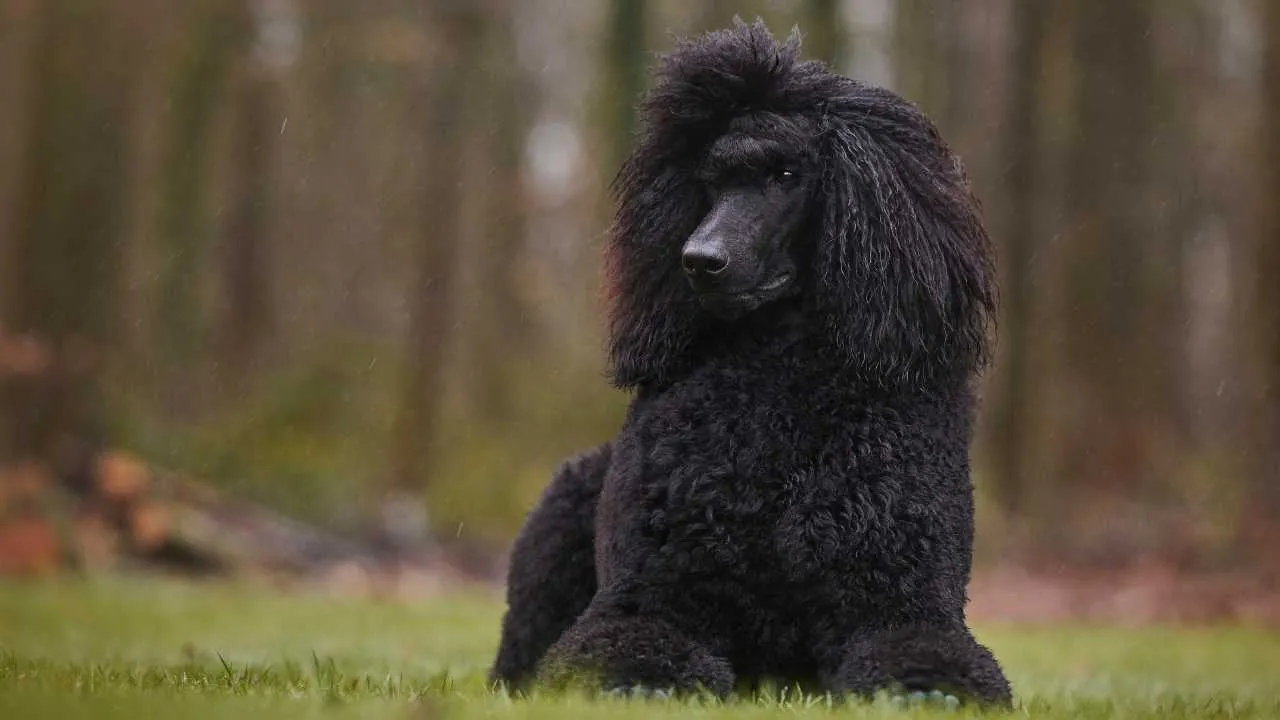
Let’s be honest. When most people think of Poodles, they picture a fancy dog with a haircut that looks like it belongs in a 17th-century royal court. But beneath those fluffy curls is a sharp mind, a sensitive heart, and a canine that’s quietly crushing the PTSD service game.
Poodles are the James Bond of therapy dogs: elegant, intelligent, and always ready to serve with style. Poodles come in toy, miniature, and standard sizes—kind of like emotional support in small, medium, or supersized.
Need a lap dog? Toy poodle. Need a full-body cuddle buddy with brains? Standard poodle, coming right up. They truly shine in therapy settings, making them excellent choices for emotional support roles.
Their calming temperament and affectionate nature can provide real comfort, especially for individuals managing emotional or psychological challenges.
Why Poodles Are Surprisingly Amazing for PTSD:
✅ Poodles are one of the most intelligent dog breeds on the planet. They can learn intricate tasks like alerting to anxiety cues, fetching specific items, and even reminding you to take medication.
✅ If you’re prone to sniffles (from allergies, not emotions), Poodles are a great choice. Their low-shedding coats mean fewer tissues and more snuggles.
✅ Like a curly-coated empath, Poodles are deeply connected to their person’s mood. They often sense shifts in behavior or anxiety before you even realize it’s happening.
Poodles might come across as a bit more high-maintenance than other breeds, but regular grooming and care are essential to keep them healthy and feeling their best.
4. Labrador Retriever
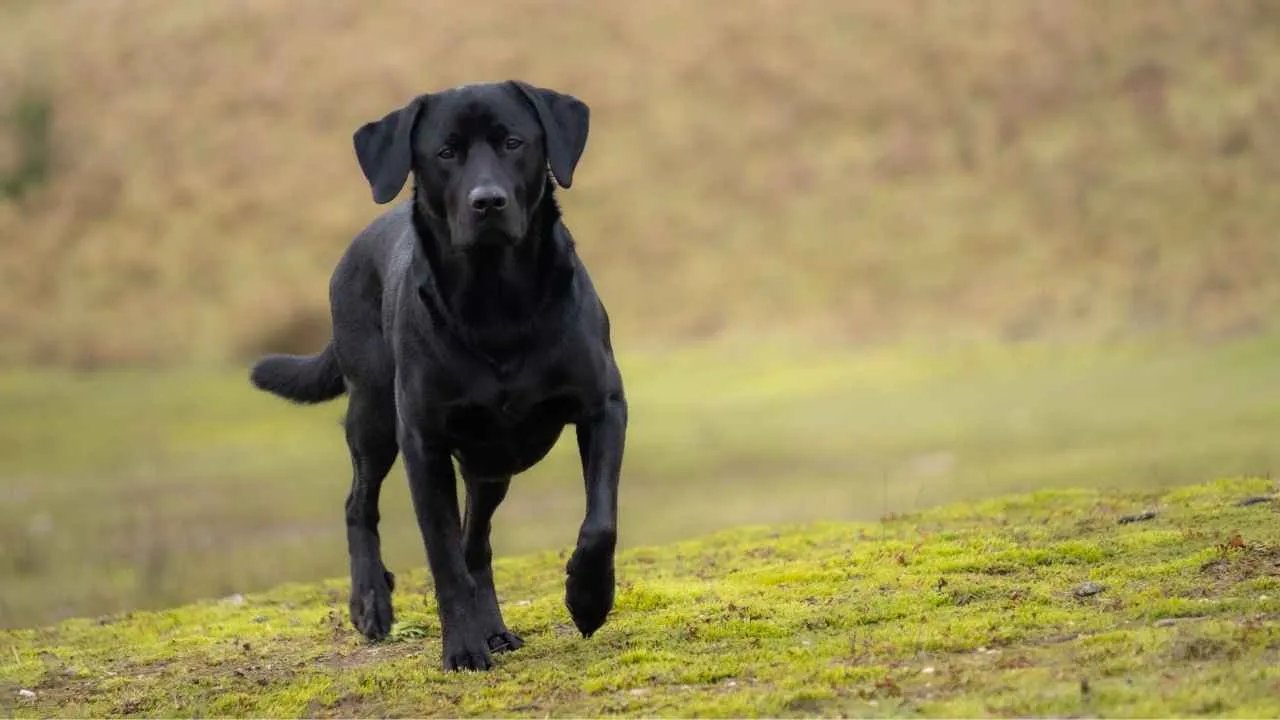
Labrador Retrievers might be America’s favorite dog—and it’s not hard to see why. Athletic? Check. Loyal? Check. Can it carry your groceries while also giving you emotional support during a panic attack? Double check.
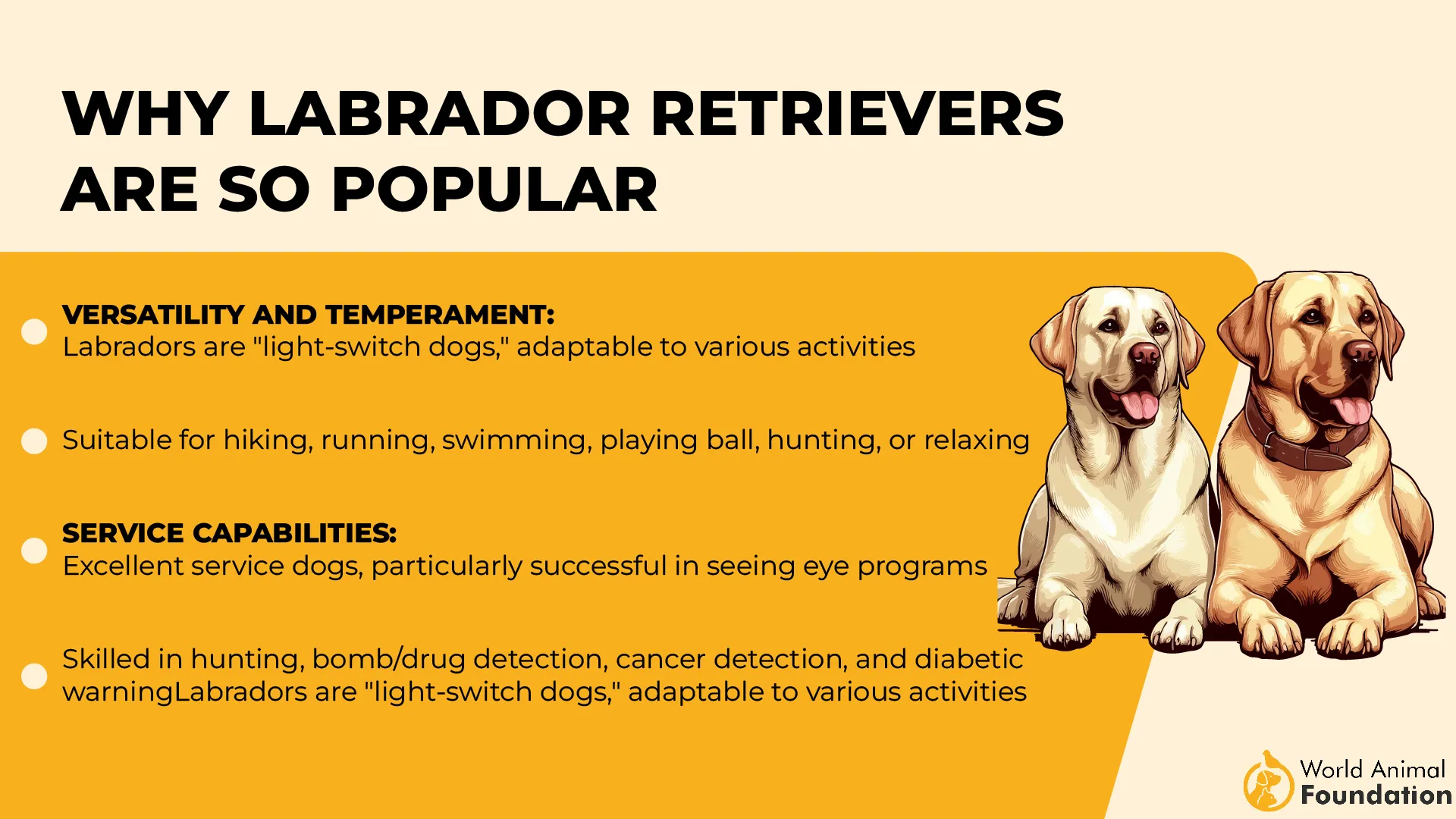
Known for their athleticism and strong desire to please, Labrador Retrievers shine in many roles, including therapy work, search and rescue, and psychiatric service dogs.
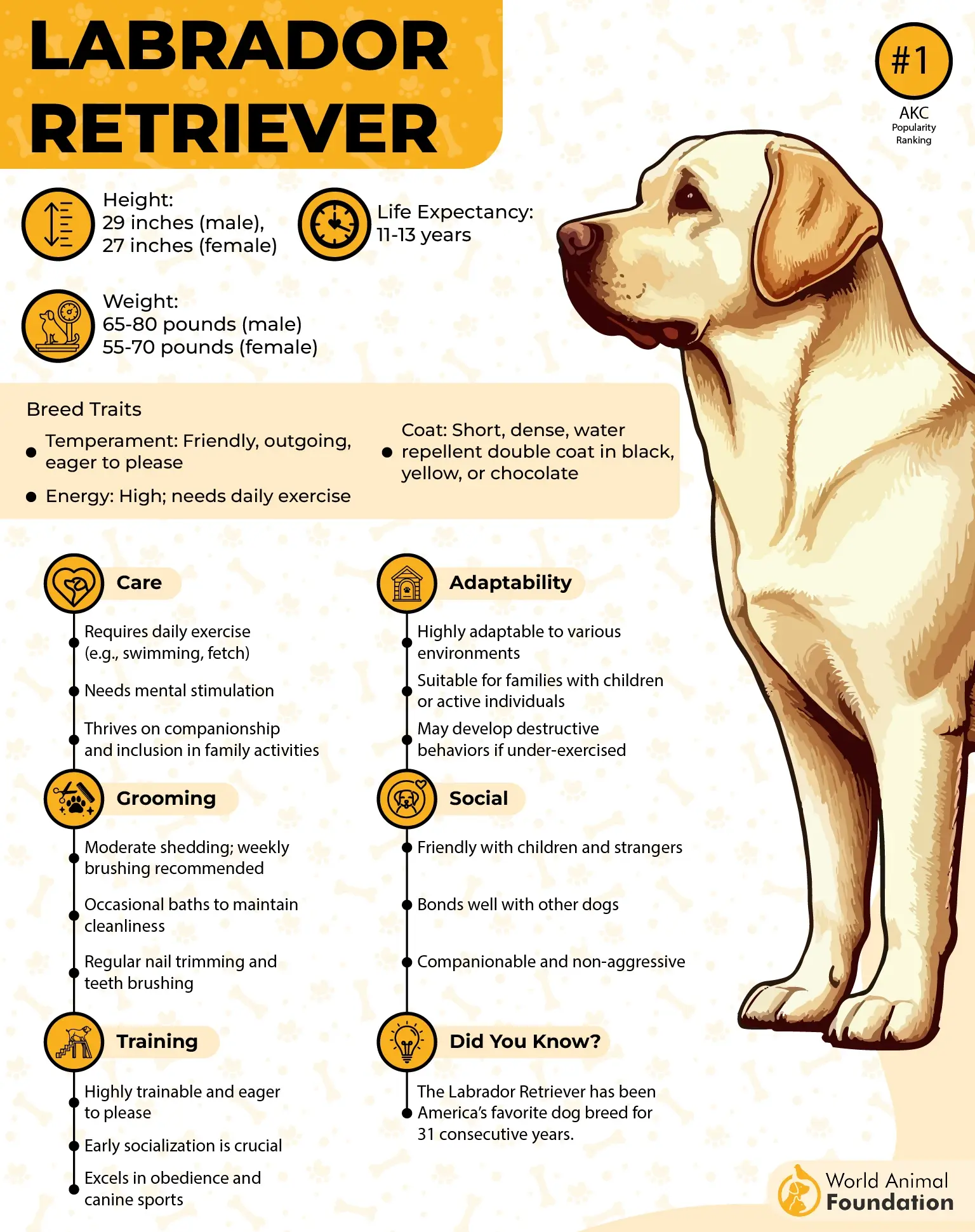
Their calm disposition and gentle nature also make them ideal companions for children, solidifying their status as one of the top family-friendly dog breeds.
Why Labs Are Top Picks for PTSD Support:
✅ Labs have a strong desire to make their humans happy. If you look sad, they’re already halfway across the room, fetching your favorite fuzzy blanket. And probably a sock. Maybe two.
✅ They’re incredibly grounded—kind of like that chill friend who always brings the right energy. When PTSD flares up, a Lab stays cool, calm, and collected… like a 75-pound therapist with a tail.
✅ From guiding, alerting, retrieving, to opening doors (literally and metaphorically), Labs are workhorses wrapped in love and fur.
Fun Fact: They were originally bred to jump into freezing waters and help fishermen, so yeah—handling a panic attack? Piece of cake. As long as they get one after. (Preferably peanut butter-flavored.)
5. Newfoundland
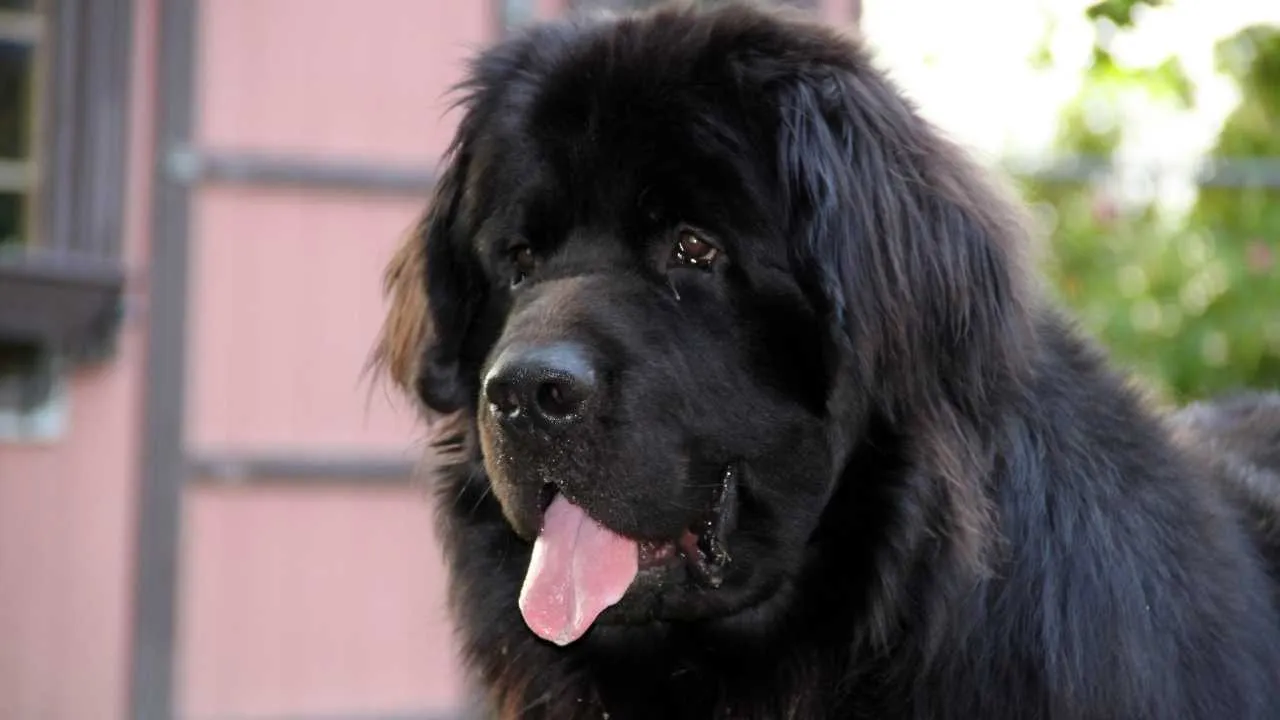
Imagine a dog so big you could mistake it for a small bear… but instead of growling, it gently leans on you with soulful eyes and gives you the kind of hug that could heal a thousand anxious thoughts. That’s the Newfoundland, or as fans like to call them, “Newfies.”
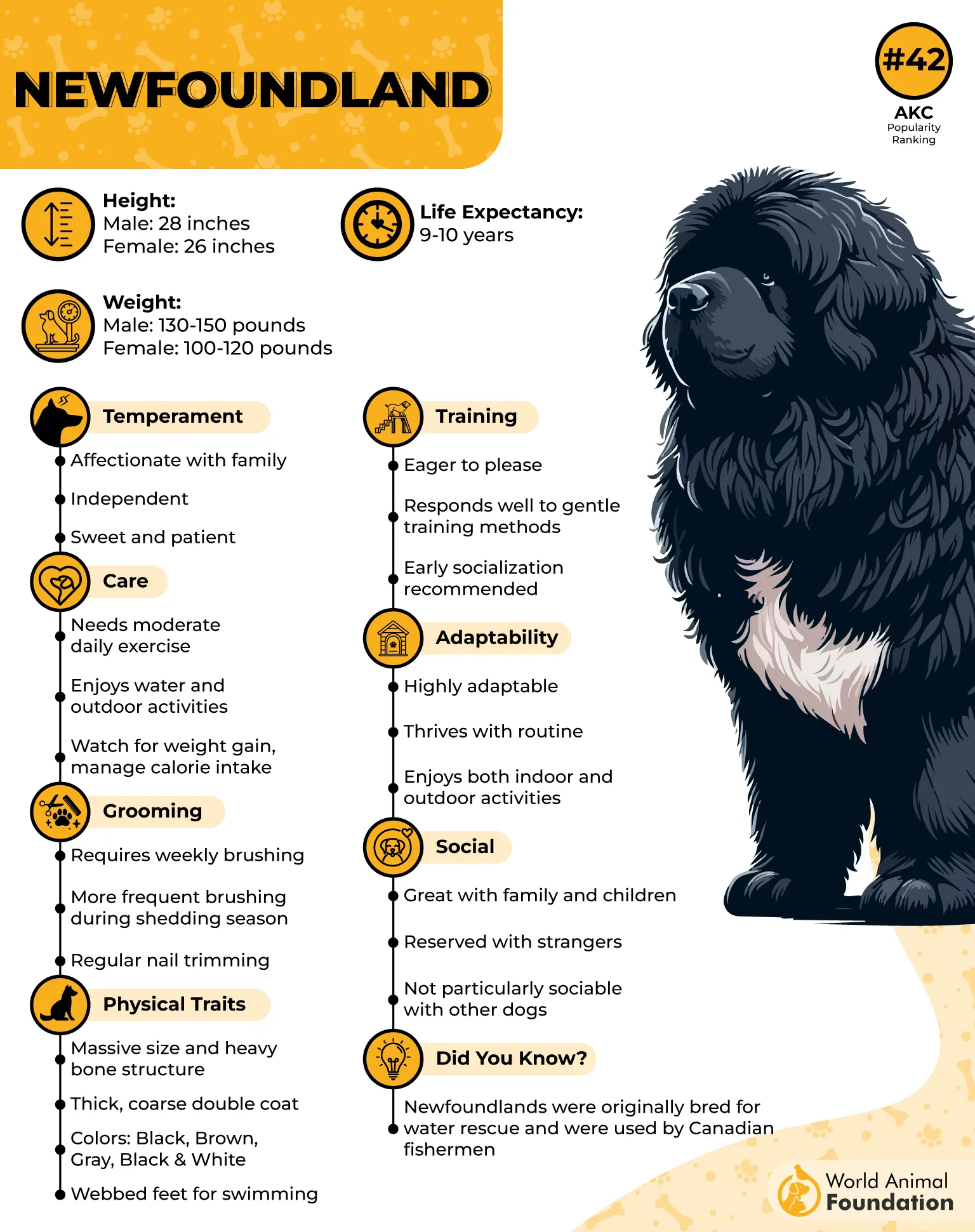
Standing between 26 to 28 inches tall at the shoulder and often weighing anywhere from 100 to 150 pounds (yes, that’s a whole person in dog form). Their thick, water-resistant double coat gives them a majestic, lion-like appearance and comes in rich shades like black, brown, gray, or Landseer (a striking black-and-white mix).
These large dogs don’t just tolerate affection—they live for it. A Newfie will gladly plant itself beside (or on) you for extended cuddles, breathing slowly like a giant, living weighted blanket.
Why Newfies Make Fantastic PTSD Companions:
✅ Newfoundlands have an uncanny instinct for saving people from water—and, metaphorically, from drowning in their own emotional distress. It’s like they were born to say, “Don’t worry, I’ve got you.”
✅ Their steady, gentle nature provides a strong, reassuring presence—perfect for those struggling with PTSD symptoms like hypervigilance or emotional overwhelm.
✅ Despite their massive size, Newfies are chill. They’re not barky, not bouncy, and definitely not chaotic. They’re just quietly devoted—like a furry monk with a heart of gold.
WebMD says they are extremely loyal dogs and love being of service since they were bred as working dogs. Newfoundland dogs have a medium energy level. These fluffy dogs require some exercise and stimulation, but once they are tired out, they will be happy to cuddle up for the evening.
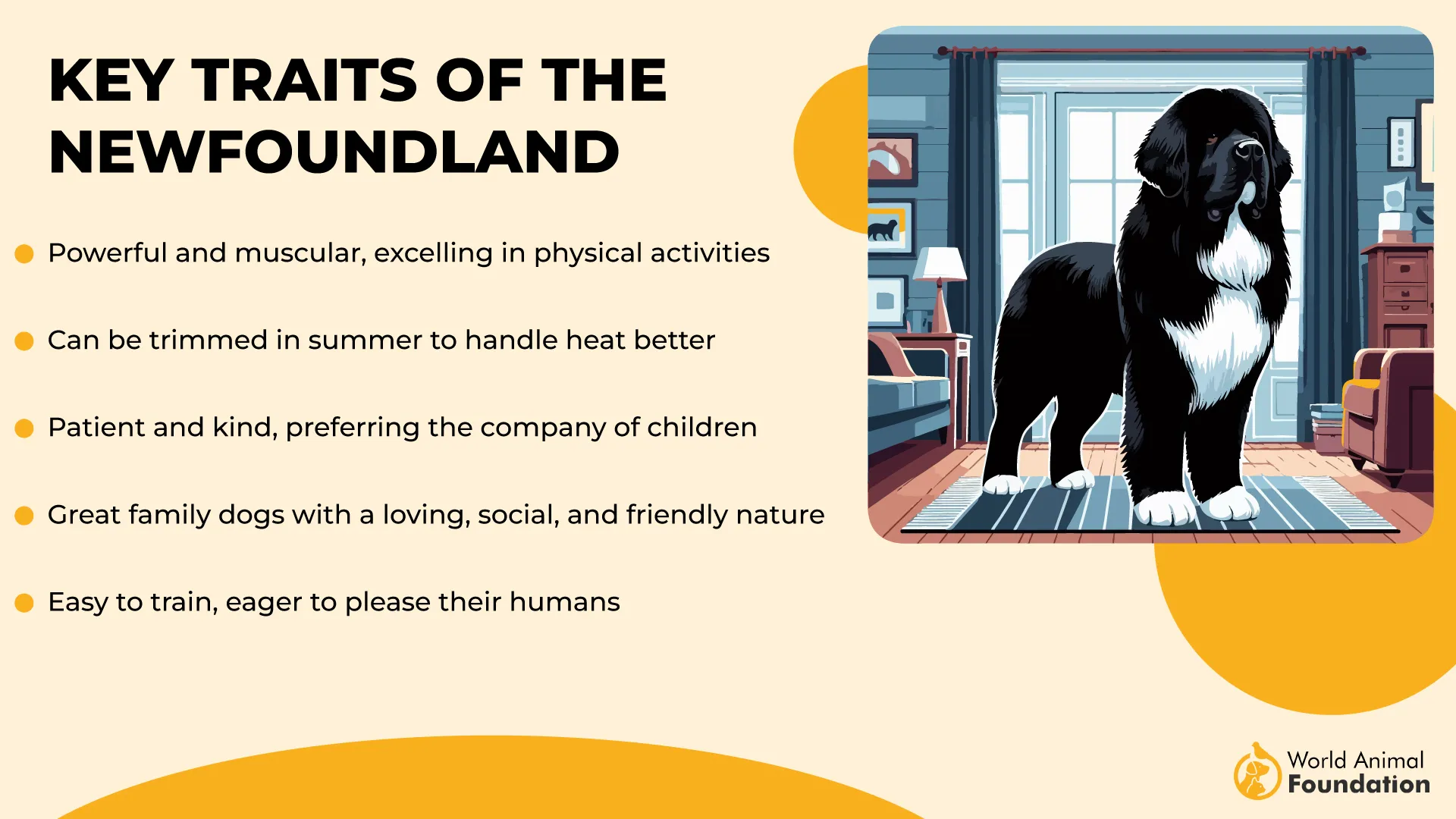
You will need a towel. Or five. Between the drool and the fur, owning a Newfie is a bit like owning a small waterfall—but one that gives hugs and heals hearts.
6. Cavalier King Charles Spaniel

Don’t let the regal name fool you—Cavalier King Charles Spaniels are less “Your Majesty” and more “Your Couch Buddy Who’s Always Down to Watch a Movie and Cuddle.”
These little dogs got the heart of a noble, the eyes of a Disney character, and the emotional radar of a tiny therapist with ears that look like they belong in a shampoo commercial.
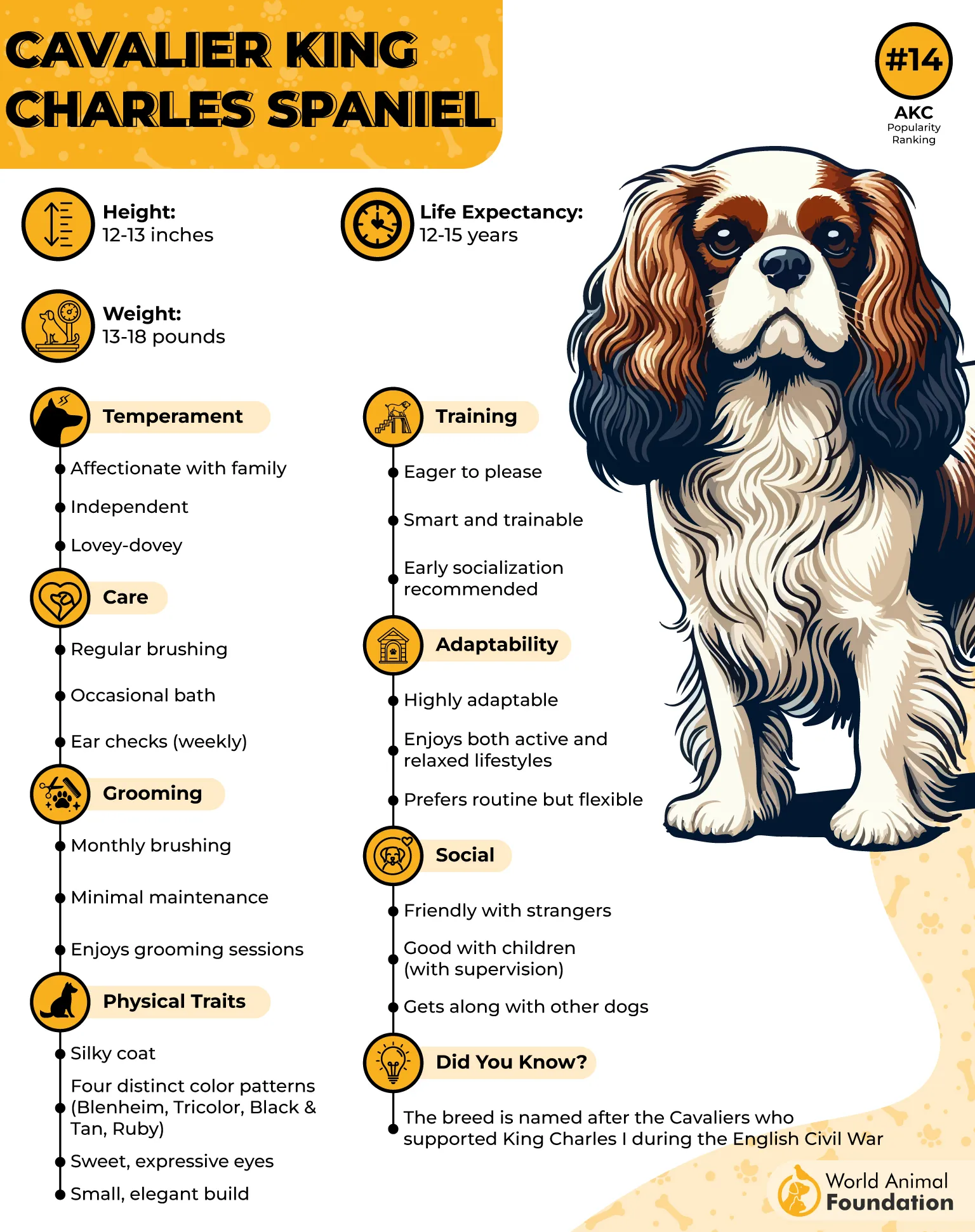
Weighing in at around 13–18 pounds, these small dogs are ideal for smaller living spaces, travel, or emotional support on the go. TSA might make you take off your shoes, but your Cavalier will make you feel like you’re walking on sunshine.
Why Cavaliers Are Crowned PTSD Comfort Kings (and Queens):
✅ Cavaliers were bred to be companions to royalty, and frankly, they never stopped. Their #1 life goal is to be on your lap, in your arms.
✅ These pups are sweet, sensitive, and have a sixth sense for emotional shifts. Sad? They’re on your lap. Anxious? They’re licking your hand. Overwhelmed? They’re looking at you with those “don’t worry, I’m here” eyes.
Not barky, not bossy, not bouncing off the walls—just sweet, serene, and snuggly. Basically, a therapy dog that feels like a plush toy and acts like your most emotionally available friend.
7. Bichon Frise
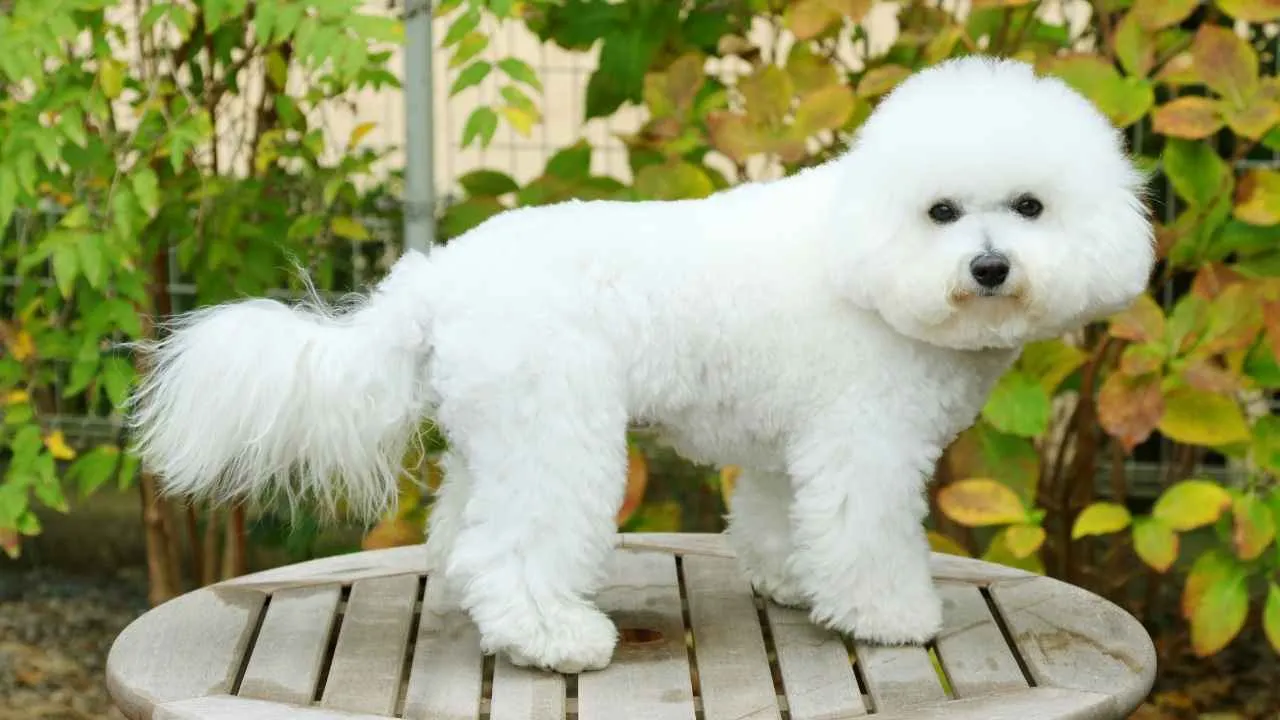
Imagine if a cloud and a marshmallow had a baby and it decided to dedicate its life to making you smile—that’s the Bichon Frise in a nutshell.
These pint-sized puffballs aren’t just adorable fluff with legs; they’re walking serotonin boosts, tailor-made for people who want all the emotional support without needing an industrial-strength lint roller.
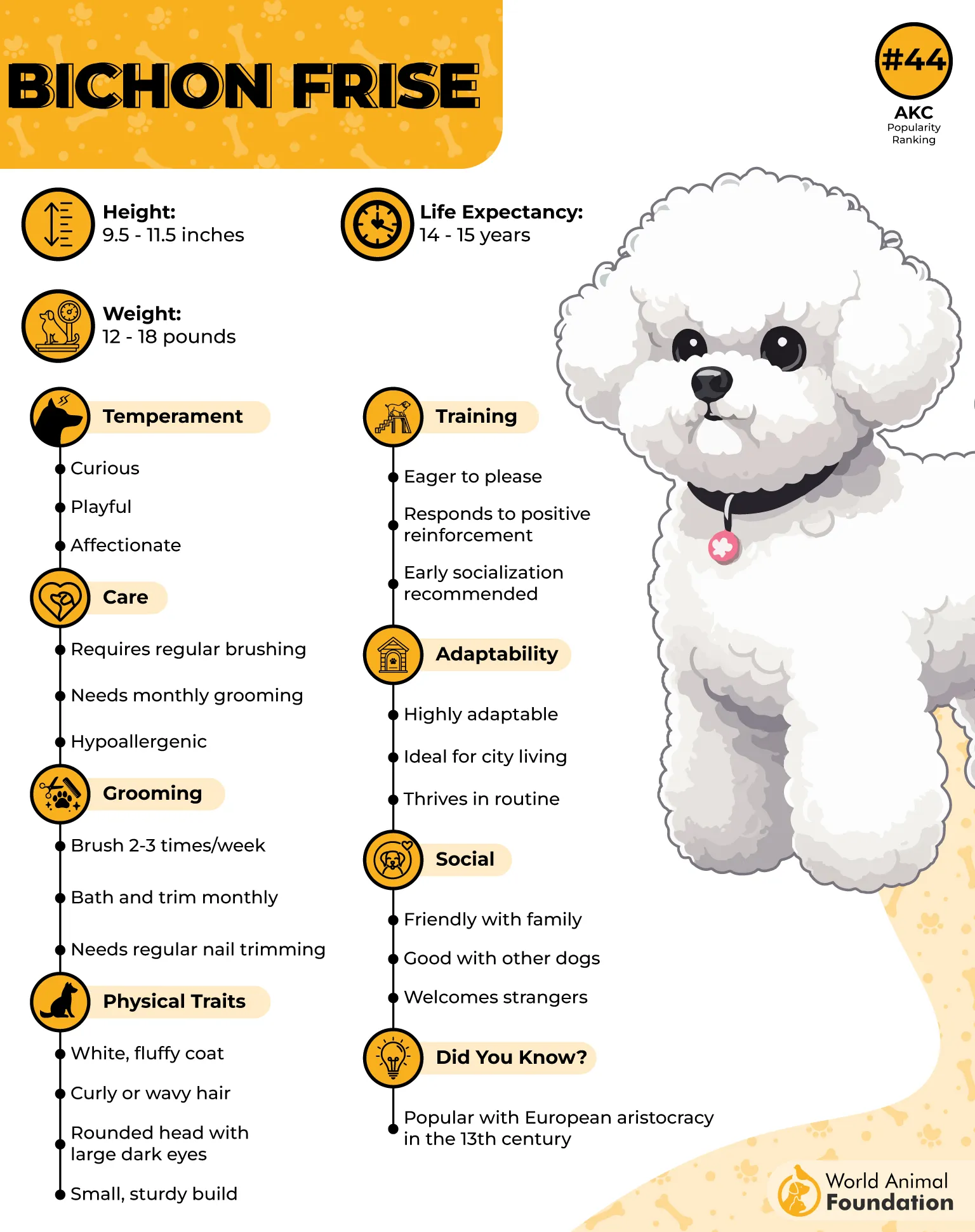
It is a small, cheerful bundle of fluff that looks like a walking cotton ball with eyes. Standing just 9.5 to 11.5 inches tall at the shoulder and weighing between 12 to 18 pounds. Their soft, curly white coat is one of their most charming features
Why Bichons Are a Great Pick for PTSD Support:
Need a cuddle buddy for when your anxiety spikes? ✅
Need a compact companion to bring along on errands? ✅
Need a reason to smile when nothing else is working? ✅✅✅
Their curly coat is low-shedding, which is great for those with allergies or anyone who doesn’t want to wear a fur suit after every hug. Sure, they might look like they should be in a toy store window, but the Bichon Frise is a legit emotional MVP. Tiny? Yes. Fluffy? Extremely. Therapeutic? Absolutely.
Conclusion
Therapy dog breeds for PTSD, especially among military veterans, need a strong sense of empathy, a loving nature, and the ability to perform specific tasks through service dog training. Certain breeds like German Shepherd dogs, Bernese Mountain Dogs, and Border Collies are among the best breeds that perform tasks such as service work and are well-suited for assistance animals helping with psychiatric disorders like military sexual trauma and traumatic brain injury.
While not all dogs make good ptsd service dogs, many veterans form strong bonds with these intelligent, easy-to-train companions. Licensed mental health professionals often recommend emotional support dogs or service animals to aid mental health, making therapy dogs vital family members in the healing process.


